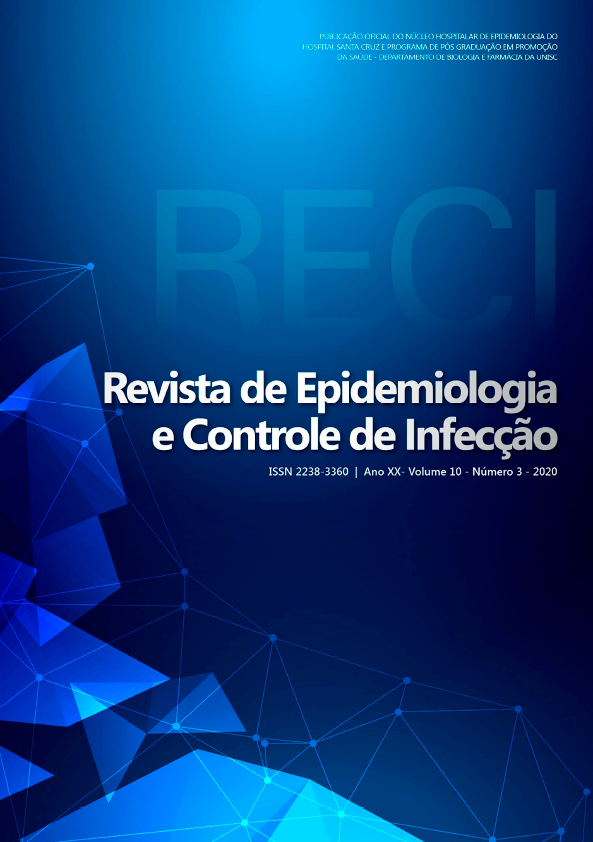Parenteral nutrition: overview of the samples analyzed at the National Institute for
DOI:
https://doi.org/10.17058/jeic.v10i3.14778Keywords:
Parenteral Nutrition. Health Surveillance. Quality Control. Contamination.Abstract
Background and objectives: Total parenteral nutrition (TPN) has great clinical importance in malnutrition treatment and prevention in patients with digestive problems. Although good practices for handling TPN are well established, contamination of these products still occurs, and this product remains listed as a higher risk drug by the Institute for Safe Medication Practices. The present study aimed to obtain an overview of the documentary data of the parenteral nutrition samples sent to the National Institute for Quality Control in Health (INCQS) of Fundação Oswaldo Cruz. Methods: This is a qualitative descriptive and quantitative study carried out based on a cross-section of TPN samples analyzed from 2000 to 2016. Results: A total of TPN 134 samples were sent during the study period. 11.20% of the samples were sent in 2001, 0.80% in 2005, 8.20% in 2006, 16.40% in 2007, 63.40% in 2013. Six samples (4.5%) were canceled and 113 submitted to sterility testing, resulting in 13.3% unsatisfactory samples. Conclusion: During the study period, four suspected events of enterobacterial contamination in TPNs administered to patients were reported, three of which have not yet been described in the scientific literature. For the safety of patients using TPN to be guaranteed, it is suggested that the norms that regulate TPN therapy be reviewed and updated, and programs to monitor the quality of these preparations should be established.Downloads
Published
How to Cite
Issue
Section
License
Copyright (c) 2020 Mariana Bruno Rodrigues Benitez, Verônica Viana Vieira, Célia Maria Carvalho Pereira Araujo Romão

This work is licensed under a Creative Commons Attribution 4.0 International License.
The author must state that the paper is original (has not been published previously), not infringing any copyright or other ownership right involving third parties. Once the paper is submitted, the Journal reserves the right to make normative changes, such as spelling and grammar, in order to maintain the language standard, but respecting the author’s style. The published papers become ownership of RECI, considering that all the opinions expressed by the authors are their responsibility. Because we are an open access journal, we allow free use of articles in educational and scientific applications provided the source is cited under the Creative Commons CC-BY license.


